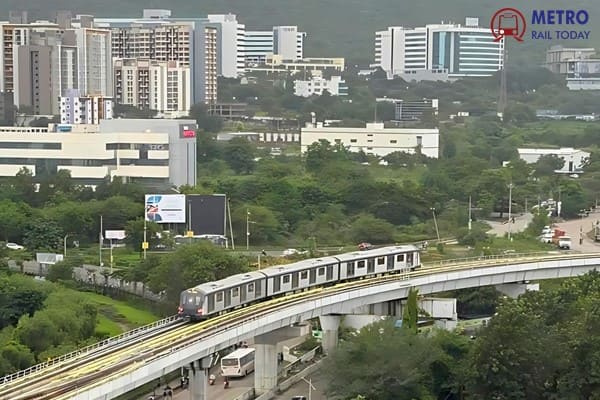 NBC Bearings and iMRail Ink Strategic Pact to power India's Next-Gen Mobility
NBC Bearings and iMRail Ink Strategic Pact to power India's Next-Gen Mobility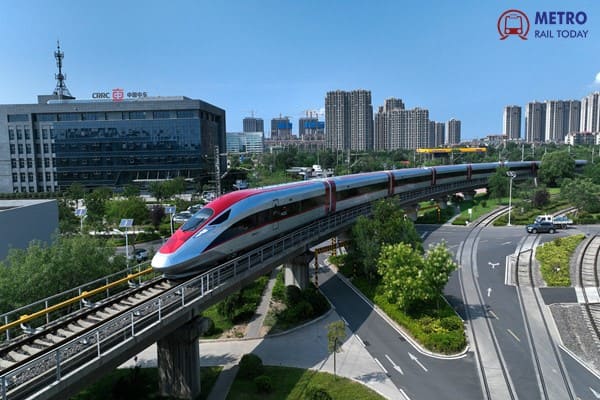 CRRC unveils the World’s First Driverless High-Speed Train capable of 200 km/h
CRRC unveils the World’s First Driverless High-Speed Train capable of 200 km/h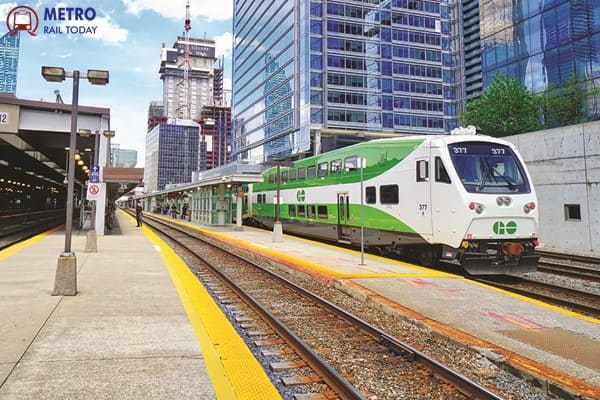 Lagos to begin construction of $3 Billion Green Line Urban Rail Project in December 2025
Lagos to begin construction of $3 Billion Green Line Urban Rail Project in December 2025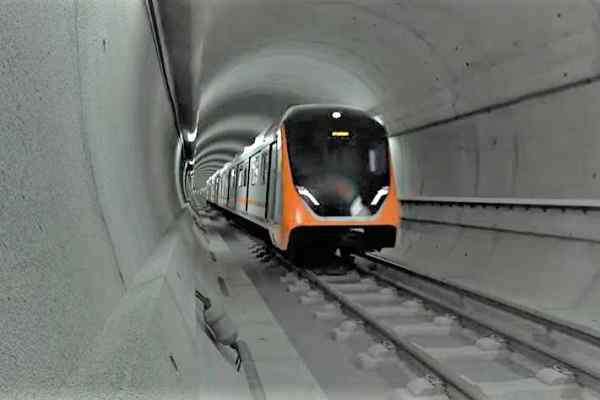 TBM Vidyarthi achieves Final Breakthrough at Kanpur Central for Kanpur Metro Orange Line
TBM Vidyarthi achieves Final Breakthrough at Kanpur Central for Kanpur Metro Orange Line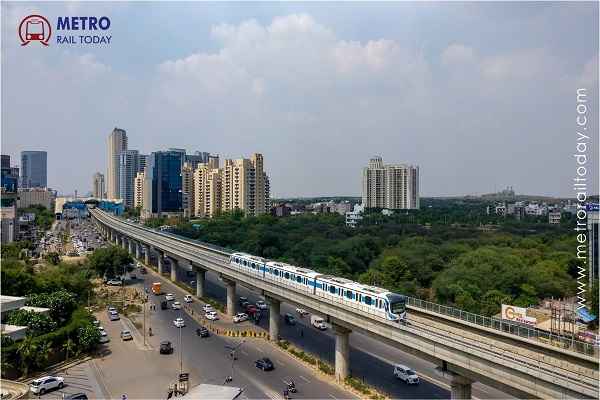 Haryana approves Spur Line connecting Gurugram Metro from Sector 5 with Railway Station
Haryana approves Spur Line connecting Gurugram Metro from Sector 5 with Railway Station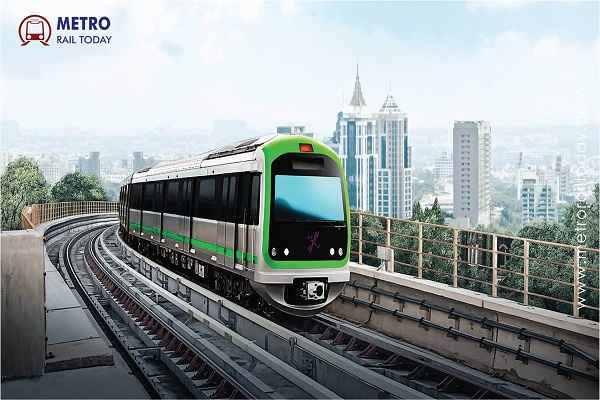 Tender launched for Bangalore Metro's ₹28,405 crore Hebbal-Sarjapur Metro Corridor
Tender launched for Bangalore Metro's ₹28,405 crore Hebbal-Sarjapur Metro Corridor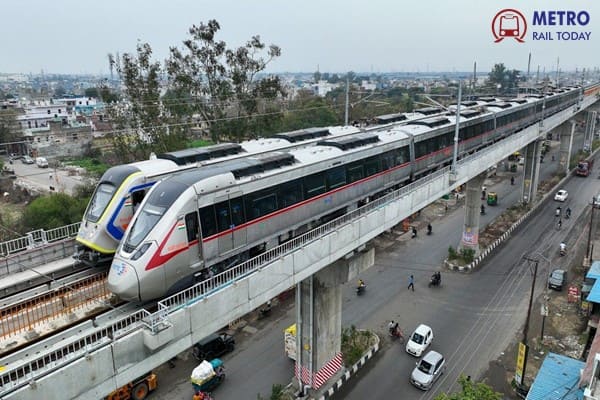 NCRTC celebrates ‘Namo Bharat Diwas’ to mark Two Years of India’s first Regional Rail service
NCRTC celebrates ‘Namo Bharat Diwas’ to mark Two Years of India’s first Regional Rail service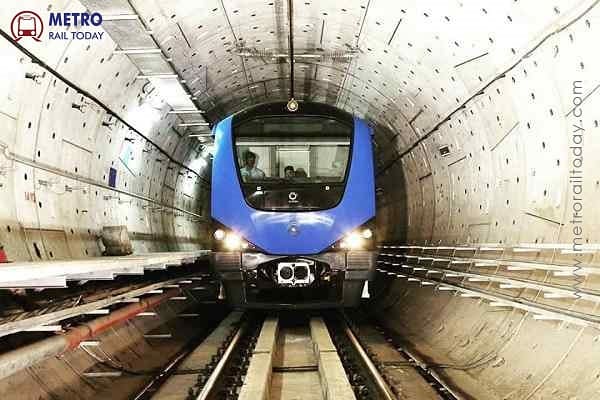 TBM Bhavani records fifth Tunnel Breakthrough for Chennai Metro Phase 2 Project
TBM Bhavani records fifth Tunnel Breakthrough for Chennai Metro Phase 2 Project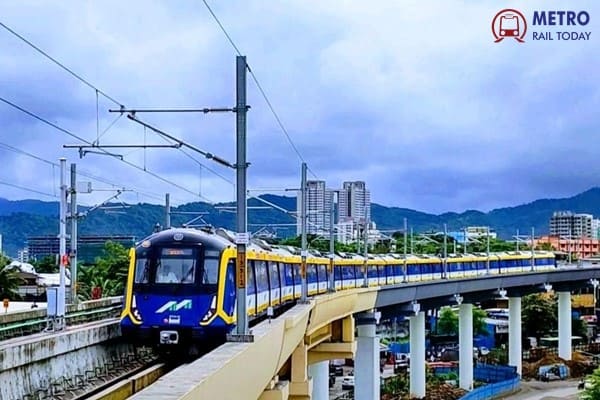 Leena Powertech bags ₹118 crore Electrical Work Contract for Mumbai Metro Line 7A & 9
Leena Powertech bags ₹118 crore Electrical Work Contract for Mumbai Metro Line 7A & 9 Bullet Train Index 2025: How China, India and the U.S. are shaping the future of High Speed Rail?
Bullet Train Index 2025: How China, India and the U.S. are shaping the future of High Speed Rail?
DMRC to launch India’s First Three-Coach Train Corridor on Delhi Metro Phase 4
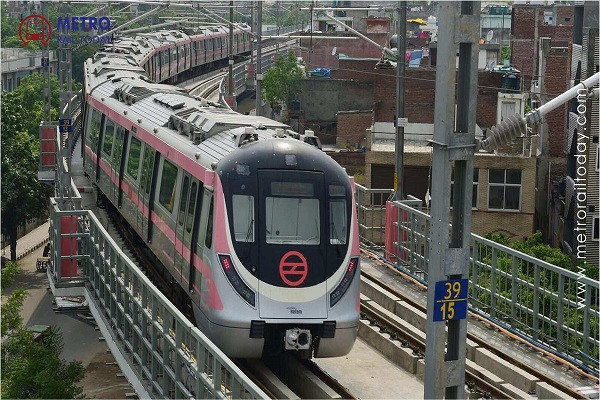
New Delhi, India (Metro Rail Today): The Delhi Metro Rail Corporation (DMRC) is set to introduce India’s first metro corridor designed specifically for three-coach trains on the upcoming Lajpat Nagar–Saket G Block route. This initiative, part of Phase-IV of the Delhi Metro project, marks a significant step in the evolution of metro travel in the country, officials announced on Sunday.
The new corridor will stretch over eight kilometers, making it the second-smallest in the Delhi Metro network. It is designed to enhance last-mile connectivity and ensure seamless interchange with other existing metro corridors, further improving the city’s public transport infrastructure.
Key Features of the Lajpat Nagar–Saket G Block Corridor
-
Three-Coach Trains: Unlike other metro lines that use four, six, or eight-coach trains, the Lajpat Nagar–Saket route will feature three-coach trains, developed specifically for short-distance urban travel. This unique configuration is expected to deliver cost-effective, agile solutions with better frequency and operational efficiency, while still accommodating a substantial number of daily commuters.
-
Passenger Capacity: Each three-coach train will have a seating and standing capacity of approximately 900 passengers per trip, with around 300 passengers per coach. This will provide sufficient capacity for the expected flow of short-distance commuters.
-
Optimized for Short-Distance Travel: The smaller, more efficient trains are designed for routes with lower passenger density, ensuring frequent services for short-distance travelers. The Peak Hour Peak Direction Traffic (PHPDT) estimate suggests that this new configuration will provide a comfortable commute without overcapacity issues.
-
Strategic Stations: The corridor will feature eight strategically located stations from Lajpat Nagar to Saket G Block, improving access to both residential and commercial areas. The stations have been designed with platforms 74 meters in length, optimized for three-coach train operations.
The DMRC's decision to introduce three-coach trains on this route is a result of a realistic assessment of passenger demand, with an emphasis on maintaining economic sustainability while delivering high-quality urban transit. By focusing on the specific needs of short-distance commuters, the corridor aims to provide an effective solution for daily travel, reducing congestion and enhancing connectivity.
The construction of the corridor is underway following the foundation stone laying ceremony by Prime Minister Narendra Modi in March 2024. The corridor is expected to be completed by 2028, with the new metro service promising to revolutionize the way people commute between Lajpat Nagar and Saket G Block.
This innovative approach to metro planning highlights DMRC's commitment to smart urban mobility solutions and sustainability. With the launch of this corridor, Delhi will take a step closer to transforming its public transport network to meet the needs of its growing population.




